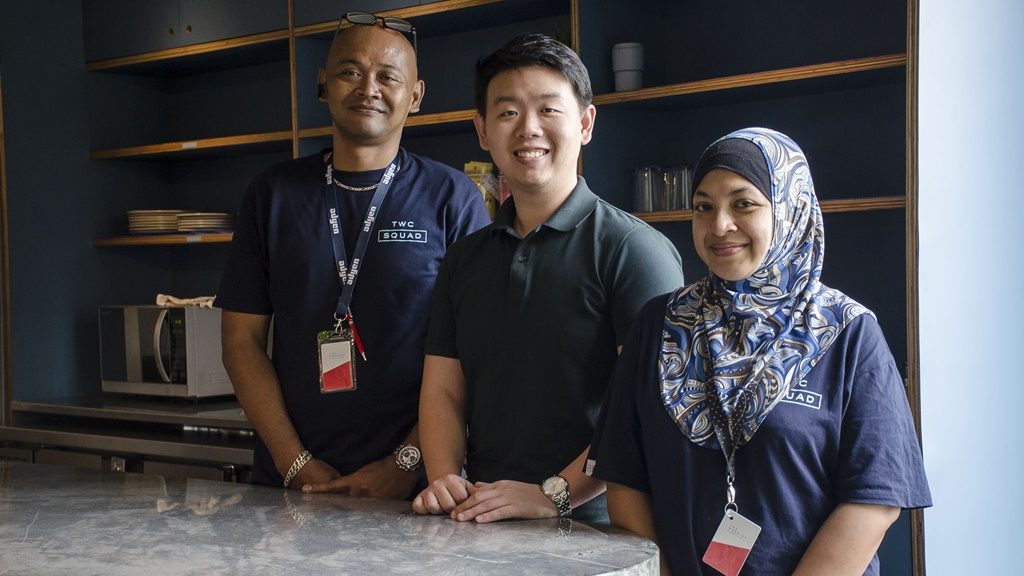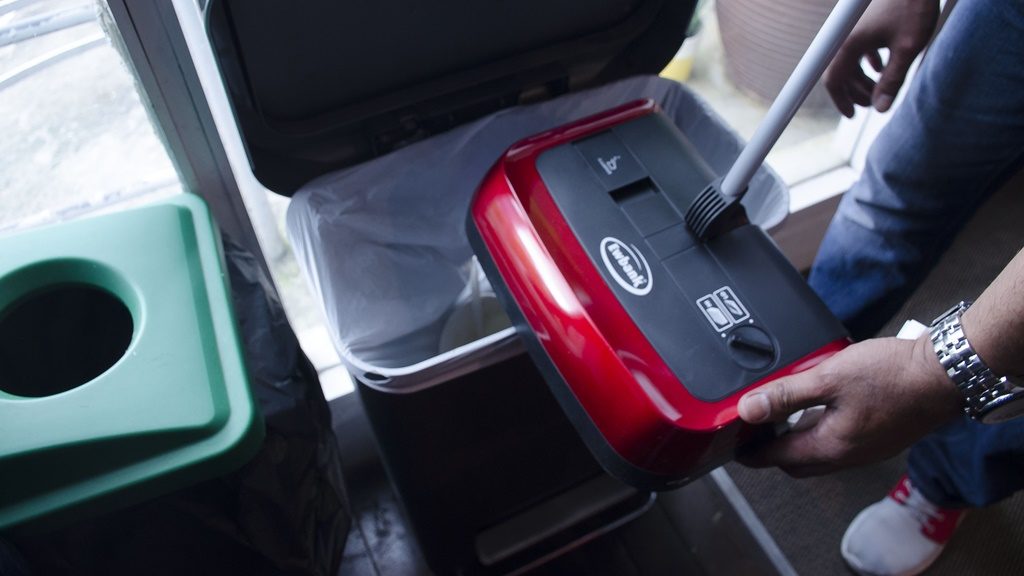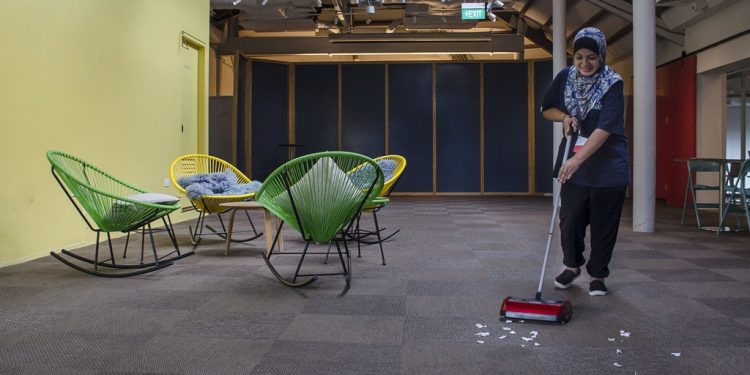An economist by training, 30-year-old Benjamin Chua never expected to go into business, much less set up Spic & Span, a company specialising in supplying commercial cleaning services to offices in the Central Business District.
The turning point came back in 2015, when a friend working in a hotel called with news that seven older workers were being retrenched. The friend wanted to know if there was anything that he and Benjamin could do to help them. Recounting that seminal moment, Benjamin shared how they started a housekeeping company to help the workers find jobs as housekeepers in the various service apartments he got to know through his day job.
“I just took the step forward. We didn’t come in from the business angle. We came in simply because there was a group of people who needed a job and we wanted to do something. I had been volunteering for a while, but this was the first time where I felt that I could be directly involved in helping someone,” said Benjamin, who eventually left his day job in a venture capital firm to devote more attention to growing Spic & Span, which was set up in August 2015.
He also decided from the onset that the company, now a 50-strong Singaporean team, would have a social mission to help Singaporeans from marginalised backgrounds find sustainable employment.

Staying Ahead of the Competition
Commercial cleaning services is a crowded space with many companies vying for contracts. This makes it imperative for a startup like Spic & Span to stand out from the crowd.
“Cleaning is a recession-proof business, and there are so many buildings in Singapore, and all of them will require cleaning. We are working towards being more specialised in it.
“We patent our own technologies (such as the use of specially formulated anti-microbial chemicals) and bring in our own automated systems, so that we are not just more productive, but we have the additional advantage of being more specialised,” shared Benjamin.
To make the actual cleaning job easier and more productive, the company has also made use of technology. One example is the use of a mobile sweeper that is not only effective in sweeping up dirt and dust, but also works silently. This enables staff to clean throughout the day instead of having to stress over completing the task before and after office hours.
The company is also exploring the idea of automating the toilet cleaning process.
“What we want to achieve is automating the job function, so we can tell workers that they can be cleaners without having to clean toilets,” he said.
A Strong Training Culture
“Cleaning is not rocket science. Most of the time, it is based on what the naked eye can see; when there is dirt, we clean it up,” said Benjamin.
While most of the training for the different cleaning roles is done through on-the-job training, the company also encourages staff to explore avenues of learning that can add value to their work.
Citing examples, Benjamin shared that some of his staff have been sent for Workforce Skills Qualification (WSQ) courses on useful topics such as conflict management and supervisory training.
“I believe in training because my workers cannot do everything themselves. Neither can I be there to conduct training. I always tell them that if there are courses out there which they are interested to go for, go for it, and the company will pay for it,” he added.

Union Support
As a new company, Benjamin admitted that there are a lot of things to learn, especially when it comes to dealing with staff from different backgrounds. While digital systems have automated the bulk of the company’s administrative and payroll processes, Benjamin went one step further to engage the Building Construction And Timber Industries Employees’ Union (BATU).
“The union has been something on my mind for a long time and I feel that there’s synergy between the union and the company,” said Benjamin, who had known about the union from a personal friend and proactively approached them. Spic & Span became a BATU unionised company in 2017 and are currently in negotiations on a collective agreement.
Besides wanting to give his staff the support of the union, Benjamin also wanted to be fair as an employer. The company has since benefitted from the union’s advice, particularly in the areas of dispute resolution. It also pays for its employees’ union membership fees.
Putting Workers First
Where it really matters for workers, Spic & Span has taken a progressive approach. For a start, all workers are hired directly by the company and deployed to suitable job sites. This means that their jobs are not dependent on site-specific contracts but on how the company performs. Benjamin also revealed that staff are paid above market-rate (based on the Progressive Wage Model, the starting salaries for general cleaners starts from $1,060 per month).
“We have to be progressive, otherwise I will lose good workers. If their salaries are always going to be reset with each new contract, where will their motivation be? Yes, our workers may have the same skillsets as any other from another company. But we want them to be able to come in here, learn, gain experience and grow together with the company.
“I have staff who, in the two years they have been with me, climbed from housekeeper to manager, and their pay has increased by almost 60 per cent. Those who are really good, we will move them into headquarters and let them start managing projects,” he said.

